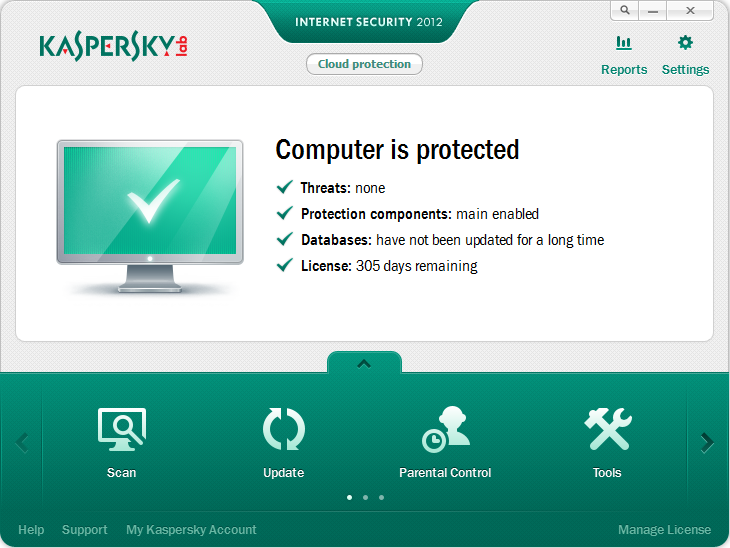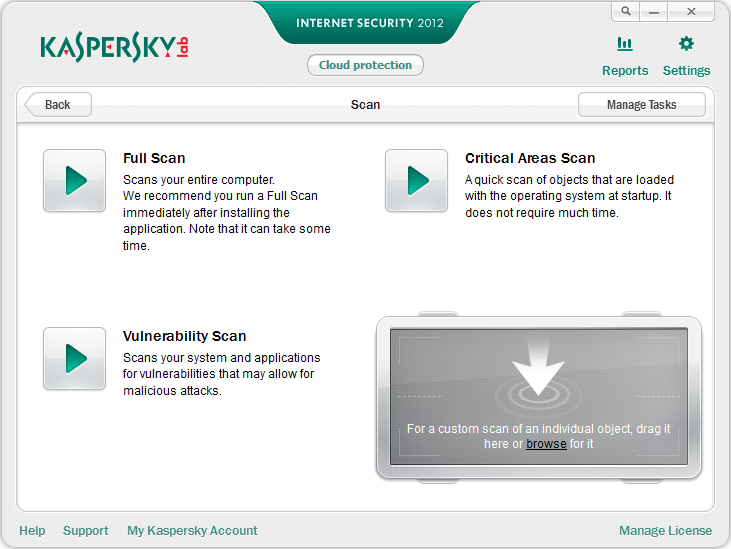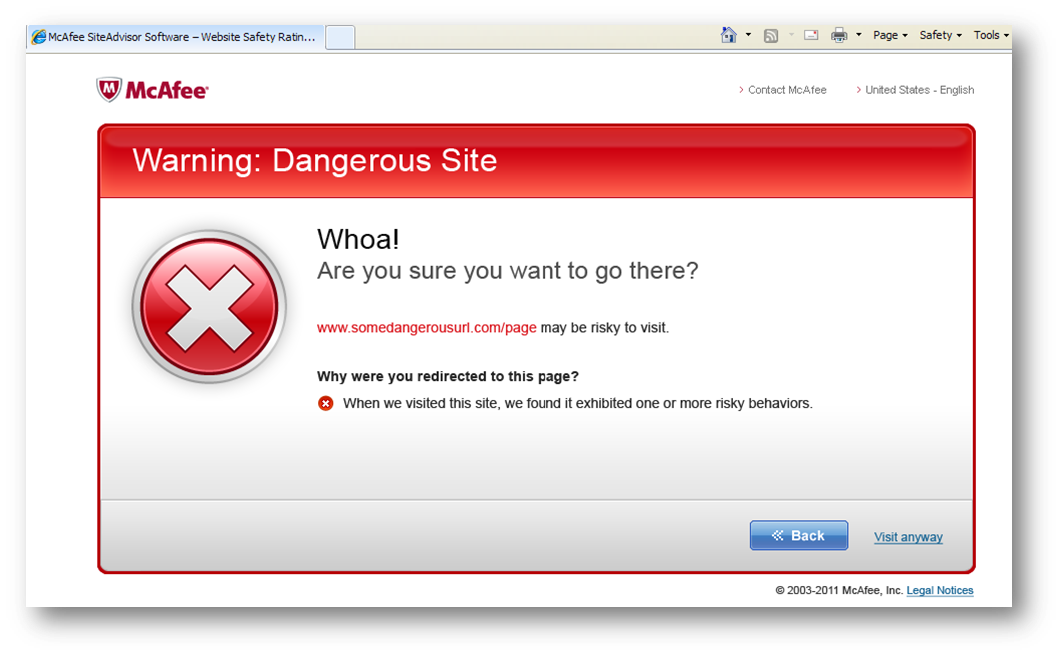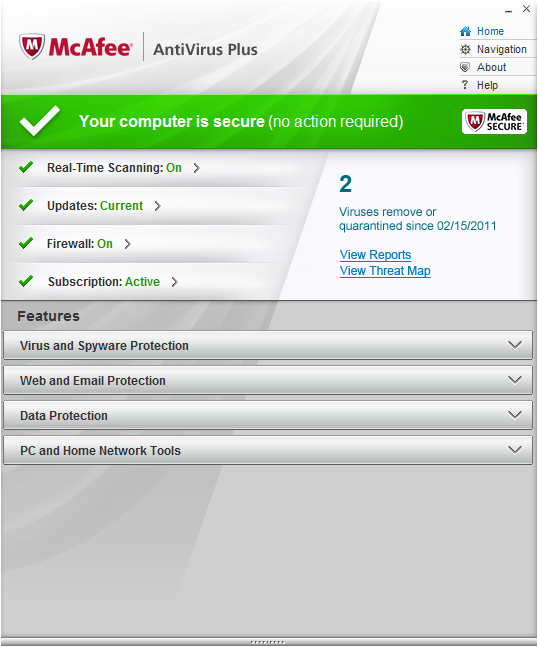Do Antivirus Suites Impact Your PC's Performance?
Most of us are now fairly confident that our antivirus scanners are doing their main job of protecting our systems from malicious pests. But what are those scanners doing to system performance behind the scenes? Are some scanners better than others?
Contenders: Kaspersky And McAfee
We aimed in the middle of Kaspersky’s AV stack and trialed the Internet Security 2012 version ($65; usa.kaspersky.com). For another $5, the Pure Total Security edition adds centralized security management for all household systems, parental controls management, a password manager, file wiping, and data backup.
Kaspersky recently overhauled its GUI, making it much simpler to work with. The company now hosts its reputation-based advice system in the cloud, which may add a little latency. But, on the other hand, it’s good to have a resource able to caution you about a given file’s trust level before you open it. The same cloud-based resources can also check application components, such as DLLs, and email for spam screening. Another clever Kaspersky addition here is malware rollback, which eliminates any system changes made by malware to the conditions of a previous session.
McAfee Internet Security ($50; home.mcafee.com/store), was recently acquired by Intel. Why? We asked, but reps only said that we’d find out very soon, wink-wink. The AV app has been around forever, of course, and is a perennial favorite for OEMs and service providers to offer as a customer incentive. In addition to antivirus, antispyware, and firewall protection, McAfee likes to talk up the product’s new anti-bot capabilities. Safeguards against malicious iFrames also bolster the app’s Web-based resume, as does “Deep Page Protection,” which alerts users before they step into a suspect Web site. We also like that McAfee automatically scans any added USB or other removable storage device.
Stepping up to McAfee Total Protection ($60) raises the package’s online storage from 1 GB to 2 GB, which is still lackluster in an age when 2 GB Dropbox and 50 GB ADrive accounts are free. The best draw in the higher-end product is anti-phishing protection. Otherwise, stick with the already well-endowed Internet Security 2012, which still provides functions like network monitoring (to show if you have rogue devices on your network) and Super Mode (a deeper inspection mode that kicks in when malware is detected).
Get Tom's Hardware's best news and in-depth reviews, straight to your inbox.
Current page: Contenders: Kaspersky And McAfee
Prev Page Contenders: AVG And GFI Next Page Contenders: Microsoft And Symantec-
dogman_1234 Regardless what anyone says: Using McAfee is like using a Glad garbage bag as a condom.Reply -
Martell77 I've been using Trend Micros AV since y2k and haven't had a reason to switch. Because of the systems my clients have I never recommend Norton or McAfee and if they have it I always recemmend they switch. Its truely amazing how the performance of their systems increases after getting rid of those AVs, especially Norton.Reply -
soccerdocks On the scanning time page there is an error in the second graph. It also says first run.Reply
Also, the timing of this article was excellent. I had just been doing some research about what anti-virus software I should switch to, mainly based on performance, but I guess I just got all the information I needed. -
compton Some of the results seem mysterious, like all the times the no-AV configuration scored lower in many tests than it should be faster in. Is it possible that using the Wildfire as the system drive instead of the platter would have eliminated this behavior? In general, I hope there is a second part to this that does include SSD runs. I would think any advantage AV products have vs. the no-AV config would evaporate.Reply
I stopped using AV products on my personal systems back in 2003. Norton back then was god-awful on a Pentium 4 systems, seemingly crushing the life out of a system. Even with a first generation WD Raptor 36GB my P4 2.6 would choke not only with Norton, but also McAfee. I might not use AV software, but I do put it on my family members' systems when it doesn't kill performance. In that respect these modern solutions seem much better.
-
ChiefTexas_82 On my Pentium D I have to run McAfee when I'm gone for a good while or sleeping as my computer slows to a crawl during the scan. Even bringing up the menus to stop the scan take way too long.Reply -
darkstar845 Why didn't they test this on a computer with average specs? The 8gb ram and very fast CPU might be offsetting the impact that the AVs put on the computer.Reply -
bit_user Thanks for this. I remember the bad old days when AV could make software builds take several times longer.Reply
-
cdhollan While my comment is completely tangential, but my inner chemical engineer can't resist making a small correction in what is otherwise a great article:Reply
>>Apparently, this is somewhat like saying you can boil water at 230 degrees Fahrenheit instead of 260 degrees. As long as the water is at 212 degrees or higher, no one really cares. -
rottingsheep installing vipre speeds up your computer?Reply
i think something is wrong with your numbers. -
Amazed ESET is not being tested considering it sells itself on its performance over the competition while maintaining the same levels of protection.....Reply



